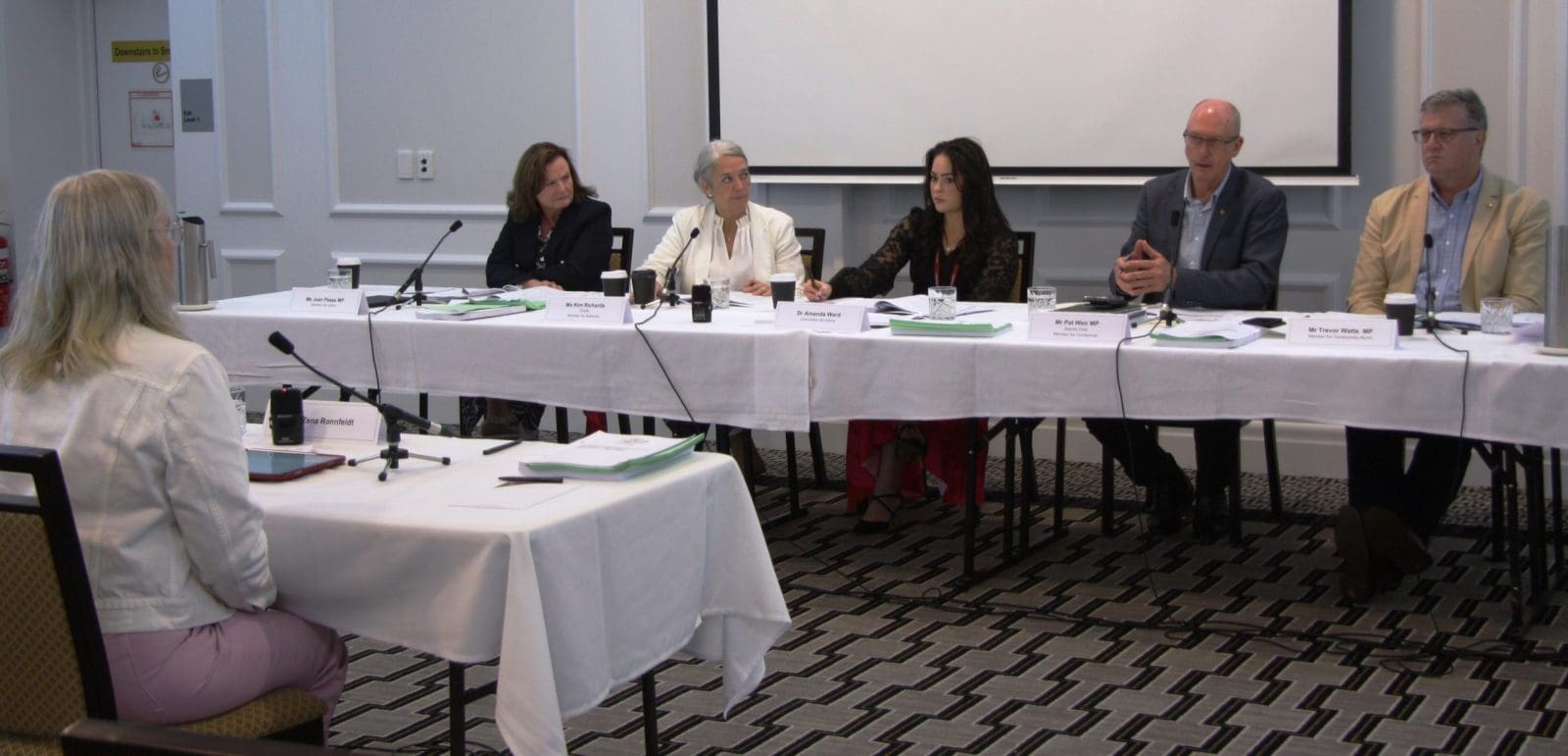
Downs farmer and landholder Zena Ronnfeldt before the committee comprising Labor MPs Joan Pease and Kim Richards, secretary Amanda Ward, and LNP MPs Pat Weir and Trevor Watts in Toowoomba last week.
A QUEENSLAND parliamentary committee last week heard submissions voicing concerns that the surety of coal-seam gas operations is being favoured over farming in proposed amendments to legislation.
This follows Minister for Resources and Critical Minerals Scott Stewart’s introduction on April 18 of the Mineral and Energy Resources and Other Legislation Amendment Bill 2024 into the Queensland Parliament.
The bill has been referred to the Clean Economy Jobs, Resources and Transport Committee, which sat in Toowoomba on May 8, and is due to submit its report by June 7.
Subsidence, ostensibly as the result of coal-seam gas operations which have been widespread for more than 10 years, was the common concern in submissions from irrigators in the wider Dalby area.
Common among farmer submissions was a hope that the Office of Groundwater Impact Assessment could undertake a broader role that included an overdue CSG industry-funded gathering of baseline data to accurately map farmland topography.
Growers also used their submissions to highlight their lack of agency in dealing with CSG companies and contractors that have access to off-tenure land not covered by conduct and compensation agreements.
Submissions outlining subsidence came from landholders and growers including the Newton family’s NPH Farming Syndicate, the Wesley Back Family Trust, Zena Ronnfeldt, Stuart Armitage, and Liza Balmain.
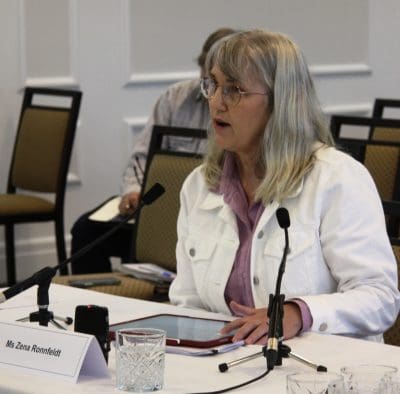
Zena Ronnfeldt presents her submission to the Qld parliamentary committee.
Ms Ronnfeldt and her family farm at Kupunn, west of Dalby, and her submission outlined seepage from a 1.2-billion-litre capacity dam on one of their 10 farms which started seeping “millions of litres of water a year” about three years ago.
This followed directional drilling from neighbouring land by a CSG company.
“This has caused us significant crop loss and pumping cost to try to replenish the lost water,” Ms Ronnfeldt read from her submission.
“A deficiency in this bill is the unreasonable unfettered access it grants gas miners for all land in the subsidence management area, both inside and particularly outside of their authorised tenure areas.
“This bill does not extend landholder protection from tortious liability to off-tenure landholders, risking our ability to obtain insurance.
“This alone will put us out of business on many of our farms, put us in technical default on our bank mortgage and lending agreements, and result in us letting a couple of our employees go.”
Cecil Plains farmer Stuart Armitage said the bill added another layer of complexity and bureaucracy to farming.
“To me, this bill is designed to isolate and intimidate farmers.”
Mr Armitage also voiced concerns about the ability of land being farmed in CSG areas to uphold its value as prime agricultural land in the eyes of lending institutions.
“You’ve got to remember the banks have a fairly big say in what we do.”
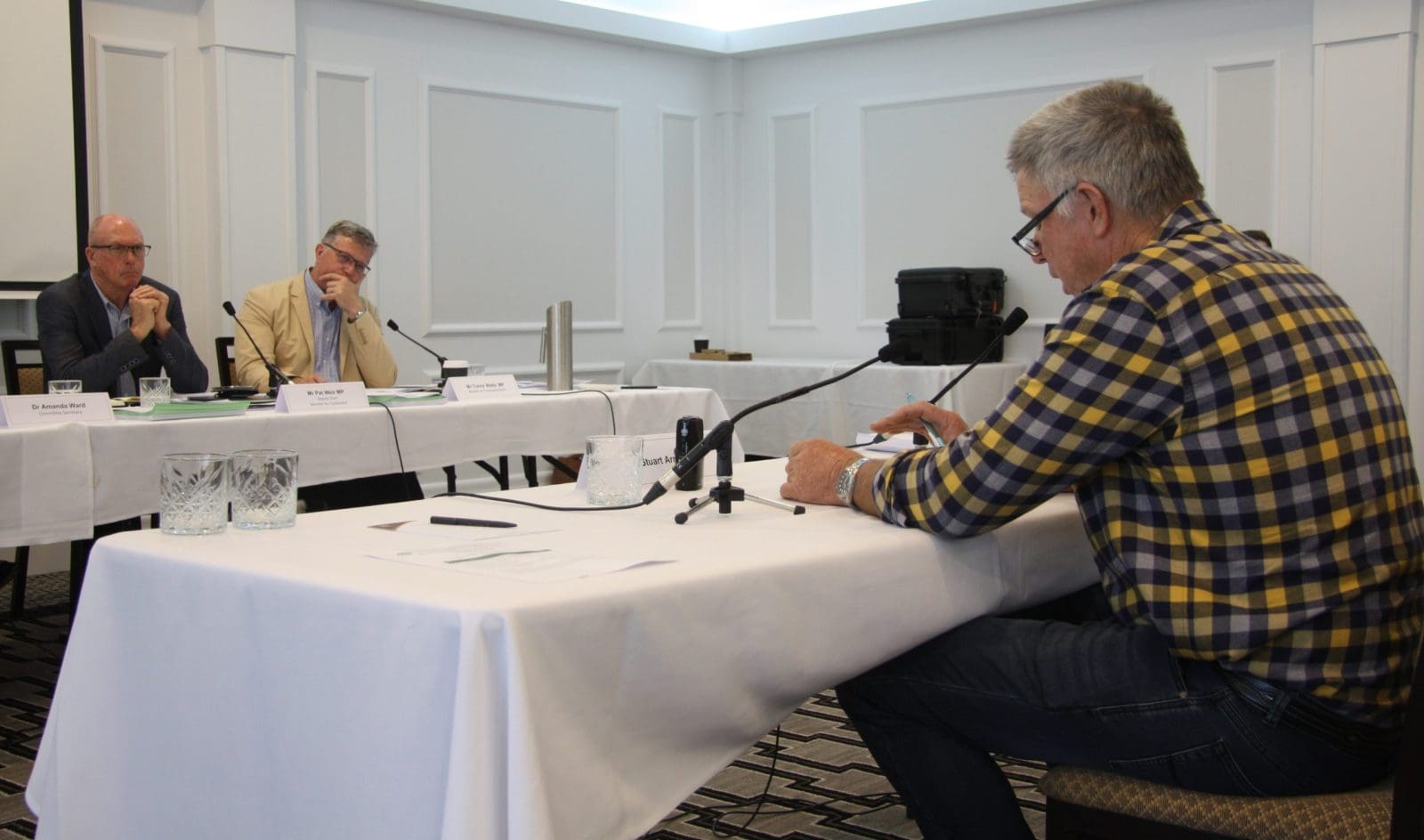
Cecil Plains grower Stuart Armitage addresses the committee which includes Member for Condamine Pat Weir and Member for Toowoomba North Trevor Watts at a hearing in Toowoomba last week.
One of the aims of the proposed amendments to the bill is to provide a framework for managing the impacts of CSG-induced subsidence.
On this, Mr Armitage was highly critical of the role of the Department of Resources and not the Department of Agriculture and Fisheries, as is currently the case, being the proposed assessor.
“If we change the overland flow, DAF will prosecute us.”
“Surely DAF should be doing assessing, not DOR.”
“DOR deals with royalties, to put it bluntly.”
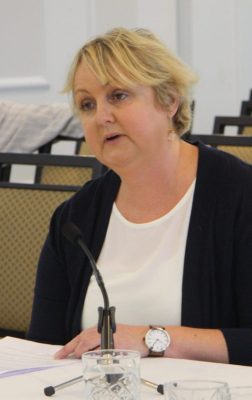
Liza Balmain presents her submission to the committee.
In terms of production, Mr Armitage said subsidence “of a few centimetres” had the potential to halve yields from cotton grown on laser-levelled fields.
In her presentation, Ms Balmain said OGIA has suggested subsidence will occur until 2060, and she believed the likelihood of subsidence was likely to place “terrific burdens” on current and future generations.
She said under current legislation, CSG companies were either denying liability, or denying the fact that subsidence was having an impact on farming.
“Without regulatory framework, they will continue to get away with this flagrant abuse of their social licence.”
Ms Balmain was speaking on behalf of her family’s farming operation at Nangwee, south of Dalby.
GasFields Commission rebrand proposed
Submissions and committee members also referred to the rebranding of the GasFields Commission to Coexistence Queensland under the proposed legislative amendments.
In its submission to the committee, the Western Downs Regional Council outlined its hopes that Coexistence Queensland could be an effective interface between the burgeoning renewable energy sector as well as CSG projects, landholders, and communities.
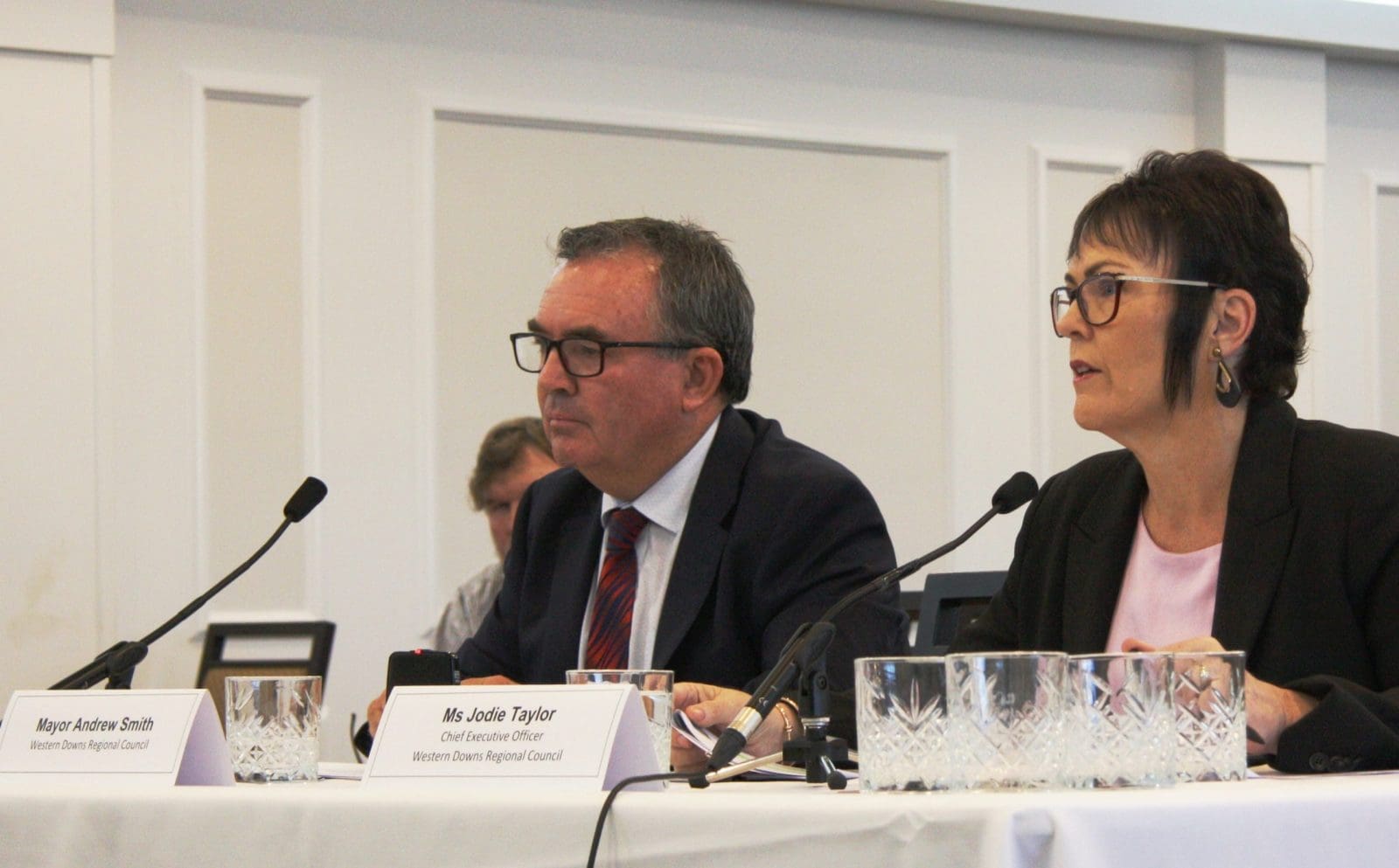
Mayor Andrew Smith and CEO Jodie Taylor presented WDRC’s submission to the Qld parliamentary committee.
WDRC’s sometimes chequered history with the coal-seam gas industry was also referenced.
“We certainly don’t want to go back 10 or 15 years, where we were at the start of the coal-seam gas industry, where there was a lot of frustration, a lot of questions,” WDRC mayor Andrew Smith told the committee.
“If the government don’t have the necessary framework and policy…we’re the first port of call.”
“That’s why we’re really happy to see Coexistence Queensland and why we’re really advocating that it is funded and supported well.”
WDRC stated it had not experienced subsidence at any of its own sites, but was aware that it was an issue for some ratepayers.
“We have engaged with landholders that are suffering subsidence.”
Grain Central: Get our free news straight to your inbox – Click here

HAVE YOUR SAY